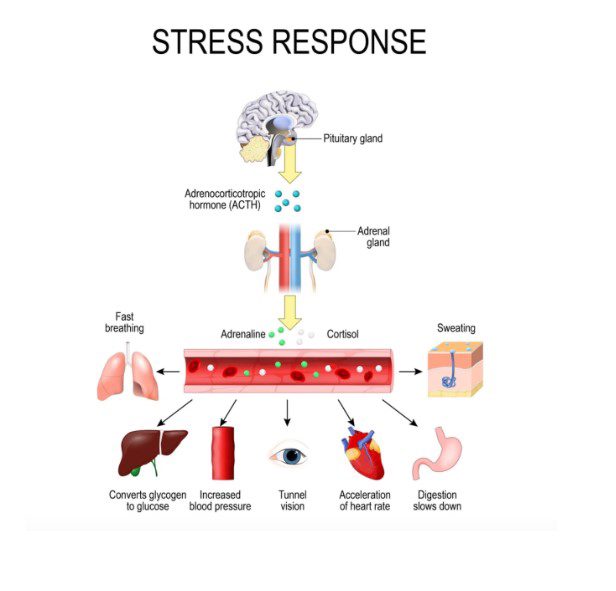How Chronic Stress Impacts Your Body
Not all stress is bad. There are happy forms of stress, such as excitement or joy, and experiencing too little pressure can cause depression or boredom. A moderate level of stress keeps us motivated and driven to fulfill our responsibilities.
Even our body’s response to negative stress – fight or flight – serves a short-term purpose; it protects us from perceived danger and threats. Historically, we needed protection from dangerous predators and natural causes. Nowadays, common occurrences such as emails, work deadlines, and traffic are the new stressors.
The stress response is helpful when we are in actual danger. Remaining in an elevated state of stress for too long takes a toll on our health. Prolonged or chronic stress leads to a consistent spike in cortisol, the stress hormone.

Cortisol signals several reactions that enable the body to fight or escape the perceived danger. Elevated cortisol levels spike blood glucose levels to provide the body with energy; however, in a chronic or prolonged stress response, consistently elevated glucose levels can lead to Diabetes. Among the host of complications of Diabetes is its acceleration of the development of cardiovascular disease.
Cortisol also triggers a higher heart rate and increased blood pressure, which are helpful during a war but not a sustainable state. Prolonged heart rate and blood pressure elevations can lead to hypertension, congestive heart failure, and stroke.
How do we prevent stress from causing heart damage?
The goal is not to eliminate the stress response but to manage it and avoid chronic stress where possible. The first step is becoming aware of the stressors in your life and how your body responds. Paying attention to your heart rate, breathing patterns, and energy levels can provide clues to how often your body goes into a stress response.
With awareness, it becomes possible to reduce stress and avoid getting trapped in prolonged stress. If it’s too tricky to remove specific stressors, incorporating meditation, yoga, and other forms of movement into your day are great ways to combat the stressful events that arise.
Today’s society accepts stress as byproduct of the modern-day lifestyle. In reality, its impact jeopardizes our heart health and decreases our quality of life. Consider managing stress as critical to your health as getting enough sleep, water, and exercise.

